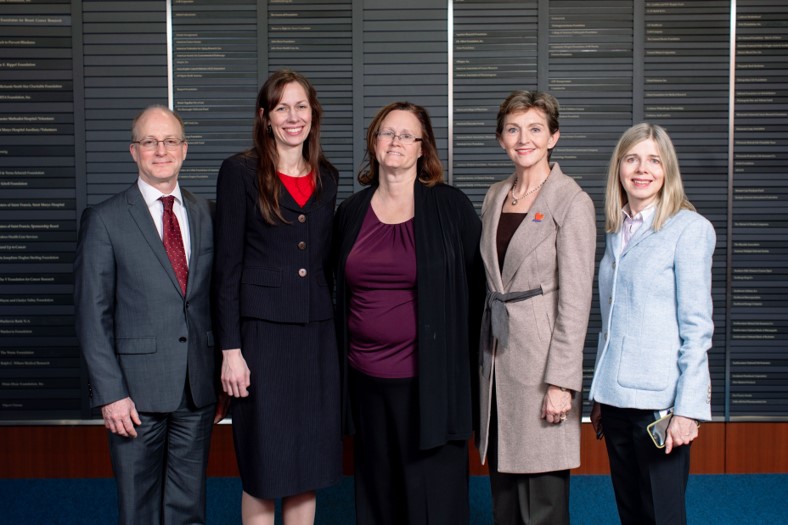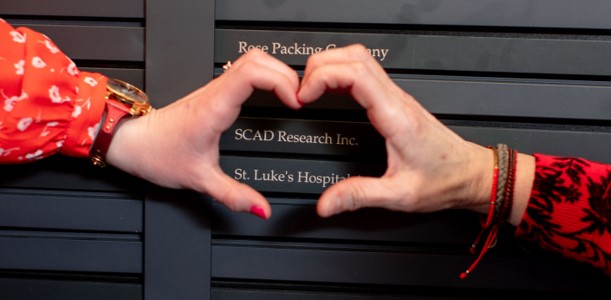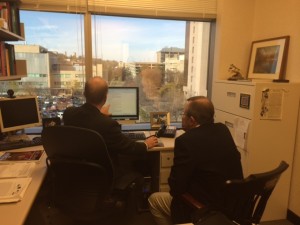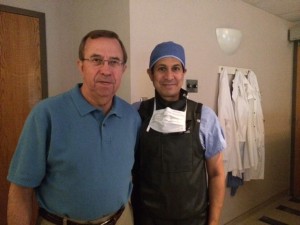Mayo Clinic SCAD Research Program
The medical community has much to learn about the treatment and prevention of Spontaneous Coronary Artery Dissection’s (SCAD), a potentially fatal cardiovascular event. Research is needed to answer such fundamental questions as:
- What causes SCAD?
- What are the best treatment options?

Dr. Timothy Olson, Dr. Marysia Tweet, Dr. Patricia Best, Dr. Sharonne Hayes, Dr. Patricia Pellikka
An important part of SCAD Research, Inc.’s mission is to raise funds to support the most promising research, which we have found to be at Mayo Clinic (Rochester, MN) under the leadership of Drs. Sharonne Hayes, Rajiv Gulati and Timothy Olson. As of December, 2019, we have donated a total of $965,000 to research with the vast majority of our funds being awarded to the SCAD Research Program at Mayo Clinic. This money was raised by grass-root efforts from survivors, their families and families whose loved ones have not survived.

Mayo Clinic SCAD Research Publications and Overview
The Mayo Clinic SCAD Research Program is an innovative multidisciplinary collaborative research and clinical practice initiative formed in 2010 with the goal of advancing the understanding of the underlying causes and risk factors for SCAD and developing solutions for the optimal diagnosis, treatment, and prevention.
You can find the latest Mayo Clinic SCAD Research Program team research publications and videos on Mayo Clinic Spontaneous Coronary Artery Dissection (SCAD) webpage.
Although previously published work by Mayo Clinic SCAD experts has been practice-changing, there is still much to learn. In addition to a robust SCAD clinical practice, the multidisciplinary collaborative study group led by the research team is focused on several interrelated projects.
 Sharonne Hayes MD, Marysia Tweet MD, and Timothy Olson MD shared their latest research findings on June 17, 2019 following our eighth National 5K SCADaddle for Research fundraiser. A video of the presentation along with a few highlights from the 5K can be found on our YouTube station. Dr. Sharonne Hayes also presented after the 2019 West Coast 5K SCADaddle for Research event on September 28, 2019. A video of her presentation can be found on our YouTube station.
Sharonne Hayes MD, Marysia Tweet MD, and Timothy Olson MD shared their latest research findings on June 17, 2019 following our eighth National 5K SCADaddle for Research fundraiser. A video of the presentation along with a few highlights from the 5K can be found on our YouTube station. Dr. Sharonne Hayes also presented after the 2019 West Coast 5K SCADaddle for Research event on September 28, 2019. A video of her presentation can be found on our YouTube station.
Mayo Clinic produced SCAD-related videos can be found on the Mayo Clinic SCAD Research webpage.
Mayo Clinic’s novel approach to patient-initiated rare disease research utilizes registries, comprehensive review of patient data, genetic analyses, advanced medical imaging, and other collaborative investigations involving research colleagues from across Mayo and at select outside organizations has already had an impact on the care of SCAD patients. These are based on a novel “virtual” patient registry and a SCAD DNA biobank. To learn more about participating in Mayo Clinic’s research, click Participating in Mayo Clinic SCAD Research.
The overarching goal is to better characterize the pathophysiology and genetic basis of SCAD and guide optimal treatments. SCAD research at Mayo Clinic continually builds upon its preliminary work and findings and its clinical expertise. Through cross-disciplinary collaboration, Mayo Clinic seeks to inspire hope and contribute to the health and well-being of SCAD patients through integrated clinical practice, education and research.

